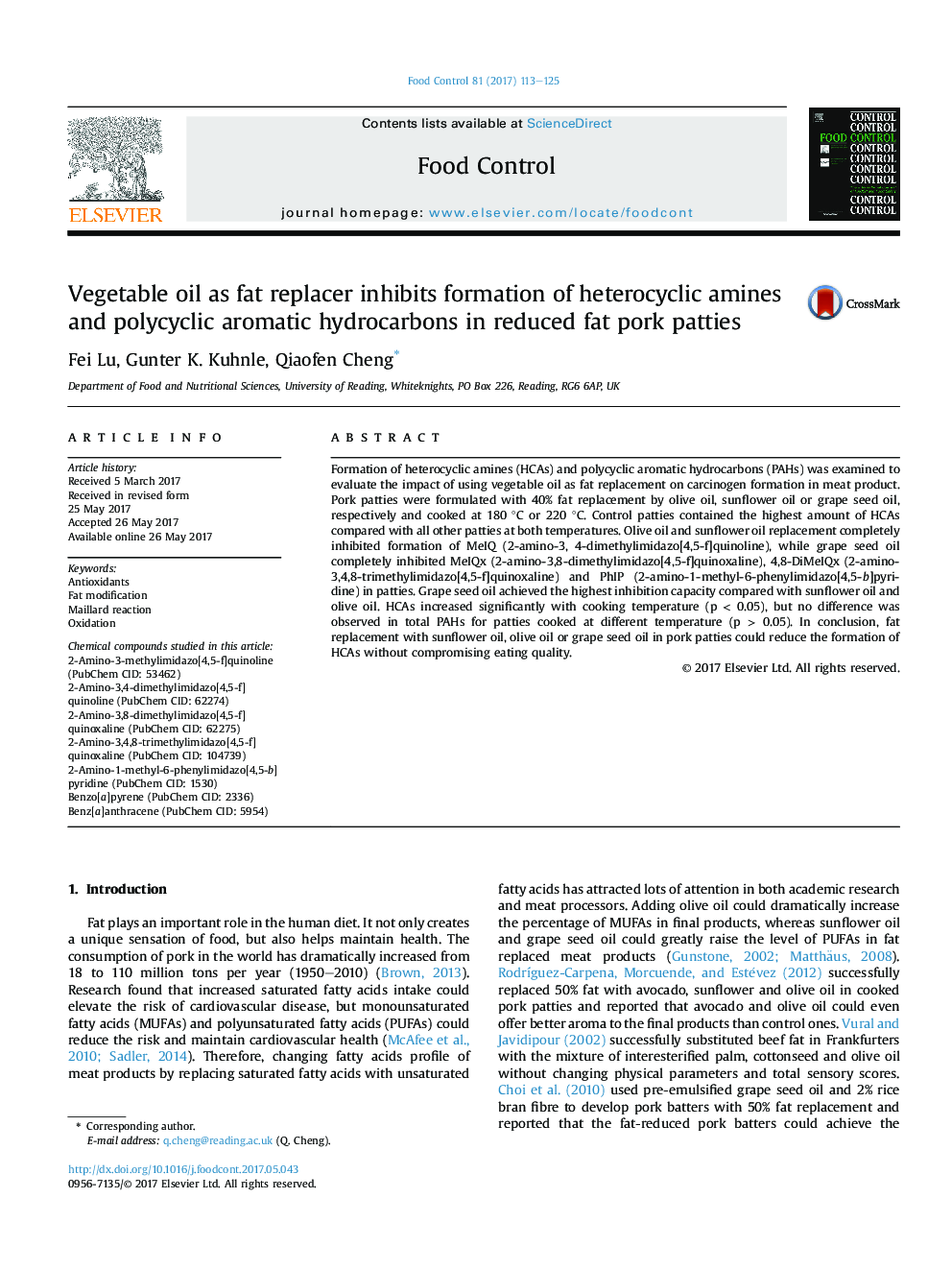| Article ID | Journal | Published Year | Pages | File Type |
|---|---|---|---|---|
| 5767187 | Food Control | 2017 | 13 Pages |
â¢Antioxidants in these oils could inhibit the formation of HCAs.â¢Grape seed oil achieved the highest inhibition capacity compared with sunflower oil and olive oil.â¢Lipid oxidation plays key role in the formation of HCAs.â¢Cooking temperature did not affect the total PAHs in pork patties.
Formation of heterocyclic amines (HCAs) and polycyclic aromatic hydrocarbons (PAHs) was examined to evaluate the impact of using vegetable oil as fat replacement on carcinogen formation in meat product. Pork patties were formulated with 40% fat replacement by olive oil, sunflower oil or grape seed oil, respectively and cooked at 180 °C or 220 °C. Control patties contained the highest amount of HCAs compared with all other patties at both temperatures. Olive oil and sunflower oil replacement completely inhibited formation of MeIQ (2-amino-3, 4-dimethylimidazo[4,5-f]quinoline), while grape seed oil completely inhibited MeIQx (2-amino-3,8-dimethylimidazo[4,5-f]quinoxaline), 4,8-DiMeIQx (2-amino-3,4,8-trimethylimidazo[4,5-f]quinoxaline) and PhIP (2-amino-1-methyl-6-phenylimidazo[4,5-b]pyridine) in patties. Grape seed oil achieved the highest inhibition capacity compared with sunflower oil and olive oil. HCAs increased significantly with cooking temperature (p < 0.05), but no difference was observed in total PAHs for patties cooked at different temperature (p > 0.05). In conclusion, fat replacement with sunflower oil, olive oil or grape seed oil in pork patties could reduce the formation of HCAs without compromising eating quality.
